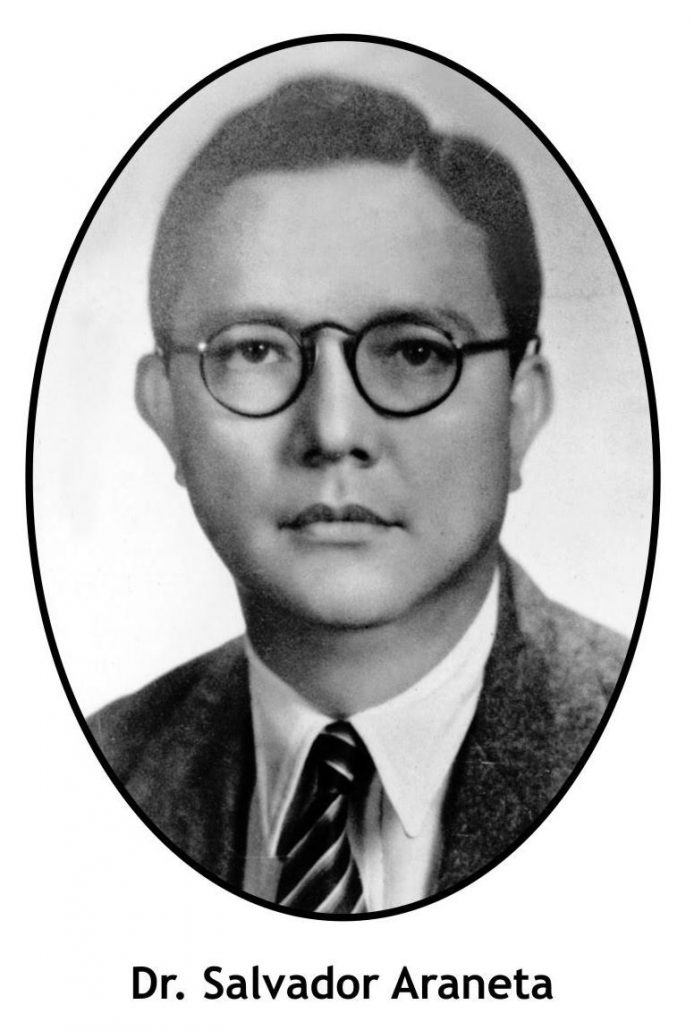 IF THE fruits of production have to be distributed in exact proportion to the contribution of machines and automation vis-á-vis the contribution of human physical labor, more and more have to be channeled to the owners of machines and automation, the capitalist, and less and less to the owners of physical labor, and the laborers. This means that the benefits of development instead of filtering down to the dispossessed actually bring about their poverty.
IF THE fruits of production have to be distributed in exact proportion to the contribution of machines and automation vis-á-vis the contribution of human physical labor, more and more have to be channeled to the owners of machines and automation, the capitalist, and less and less to the owners of physical labor, and the laborers. This means that the benefits of development instead of filtering down to the dispossessed actually bring about their poverty.
Therefore, in a good economic system, separate economic tools have to be devised and implemented for economic development, and to counteract the evils of unemployment brought about by the economic development.
The provision of Article 64 is one basic tool that will certainly put a limit to the income of the heavy weights in the economic field. It provides for a marginal differential between the salaries paid to the elite, vis-á-vis the common man.
This tool may cause havoc to many enterprises and it would not be surprising if they find it economically unwise. The fact remains that today, top executives of a banking institution that is semi-public have a monthly salary of one million pesos each plus additional benefits.
Since the bank is so prosperous and can pay those salaries, the lowest level of employees in the bank should receive a salary of P66, 666.00. If the bank cannot pay these salaries, there is nothing that would prohibit the bank to pay a salary of P1,000,000 a month to the highest executives.
QUESTION: Won’t this provision promote the exodus to foreign lands of our best executives and technocrats who would not be satisfied to earn a salary not in excess of 15 times that of the lowest paid employee?
ANSWER: This may be so. However, we should have faith in the great reservoir of good entrepreneurs and high executives that our race can produce. We must intensify our educational development of high management executives. The higher educational development that can be promoted in this country, coupled with a new national purpose infused in our youth, help in the building of our nation and pride in the achievement of a more abundant life for our fellowmen, may convince our elite to find the provision more than justified. Greed for power and wealth will not be among the values of our national identity.
QUESTION: Would there not be difficulties for many enterprises which are already treating their laborers and employees with fairness by paying them minimum wages provided by law, while the high executives are not even getting a salary fifteen times those of the lowest employee?
ANSWER: The 15 times differential is the maximum provided in the Constitution. A lower differential is not unconstitutional. Therefore, the present situation can continue to exist without violating the proposed constitutional provision.
Article 65. Work, either physical or mental, is both a duty and an honor. Within a period of six years, the State shall have implemented socioeconomic policies to provide employment opportunities for all mentally and physically able people, to include creative work, giving proper balance to the mental, the intellectual, and the spiritual. This provision is justiciable against the State except Metro Manila, for in its case, the collective leadership would be made accountable.
EXPLANATORY NOTES
QUESTION: It is reasonable to demand from the five States, into which the Philippines shall be divided, the actual implementation of full employment?
ANSWER: The Government must realize that people who are working constitute our great national asset: they represent minds and hands which are productive. They constitute deflationary forces. On the other hand, unemployed people need to be fed, clothed, and sheltered, and yet their hands and minds are unproductive. They increase the demand for goods without providing a supply for their own necessities. When the demand for goods exceeds the supply, we have inflation.
To solve the problem of inflation existing at the rate of 15 percent to 20 percent a year, and to simultaneously solve the problem of unemployment, there is a need for a policy of full employment, say of 95 percent of the labor class. Five percent is generally considered a tolerable rate but not the present 20 percent of idle man hours.
The unemployed, which cannot be absorbed by the normal work opportunities now provided by private enterprises and government services, could be taken over by such projects as the following:
1) A vast reforestation program as wind breakers and for flood control.
2) A bold housing program for low to medium cost housing located in new industrial estates for industries geared to provide materials for housing and livelihood.
3) Essential infrastructure built with our idle human resources, if possible in areas not suitable for agriculture or free farms.
4) A program establishing rural schools for primary and elementary education, stressing proficiency in the national language, particularly in the English language, so that students have access to better-paid jobs locally and internationally.
5) A program of high schools and vocational training in every municipality, so that we have well-trained skilled workers.
6) A program of colleges and universities that stress on agriculture, natural resources, and new technologies in every province, with proper funding so that these schools get proper accreditation to enable their students to get higher-paying jobs. Students are encouraged to study a third language, Chinese, Arabic or Japanese. Colleges, Universities are to offer a third language.
7) A bold program establishing hospitals throughout the country that use not only Western medicines, but also making use of our abundant flora and fauna as alternative medicine.
8) The use of our water resources from rivers, waterfalls, and hot springs.
9) Rapid use of geothermal and solar energy.
We have enumerated these programs to show the feasibility of providing full employment within a period of six years, to all people mentally and physically able. The projects enumerated call for primary, secondary, and tertiary industries. One project will generate another project.
The amount of work and planning that would be required can best be performed if we have a Federal Government with five States and each of these governments (a total of six including the Federal) is guided by a Troika with executive powers delimited for each one of them, while the Troika as a body would decide, by a majority vote, on the major policies of the government, with the Legislative Body acting as the Board of Trustees in deciding the program of government.
Should that program be unanimously approved by the Troika, it is to be expected that the same will readily be approved by the legislative body. If the members of the Troika, whether belonging to the same party or not, do not have the same views on an important subject matter, the legislative body will be benefited by three different alternatives for the solution of a problem proposed by each one of the members of the Troika.
The provision of full employment within six years from the inauguration of the new Government is justiciable against the offending State. Courts under the Constitutional tribunal may impose a judgment against the guilty State to provide work and pay damages to the offended laborer or employee.
In the Federal Government, the collective leadership would be made accountable for its failure to provide full employment within Metro Manila but not made accountable for unemployment in any of the States. (To be continued/PN)





